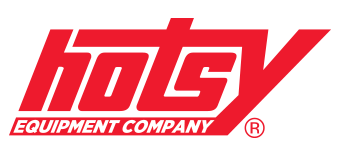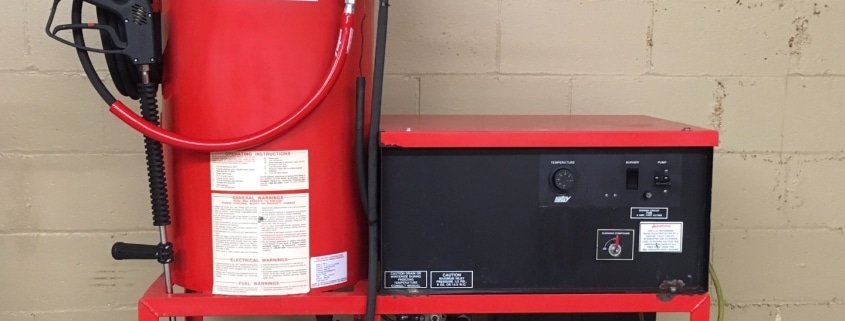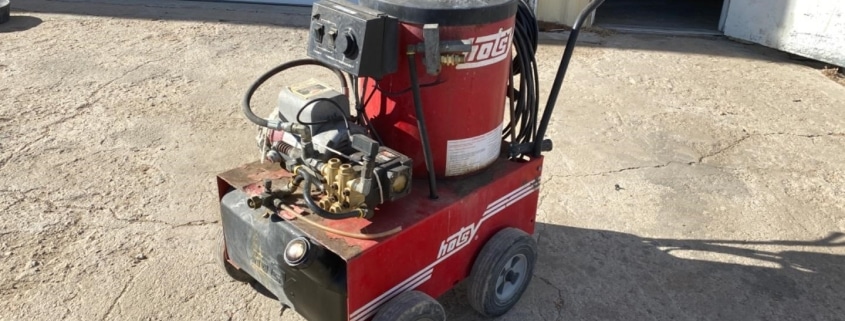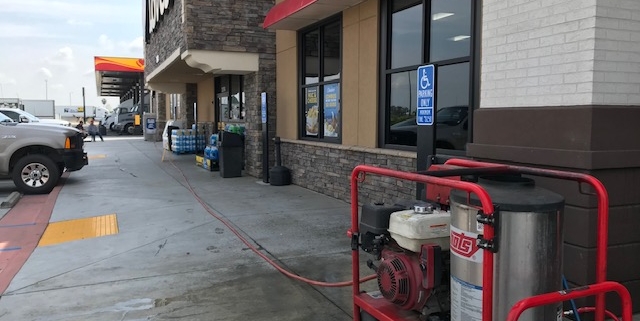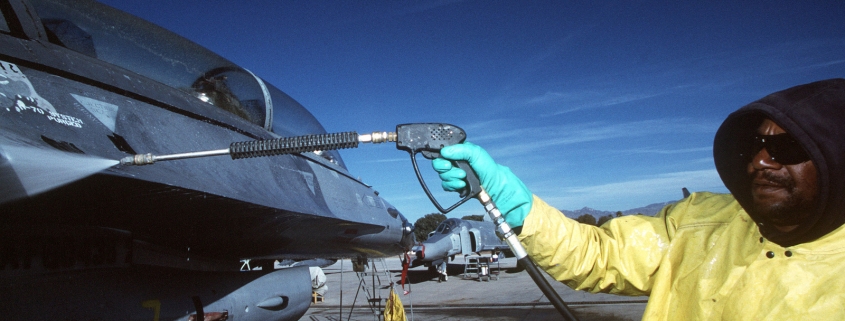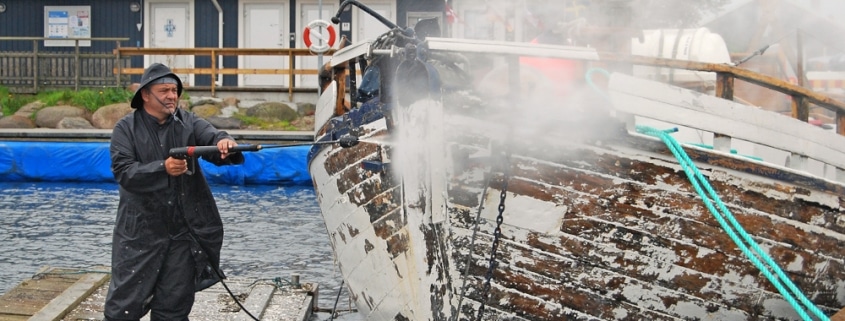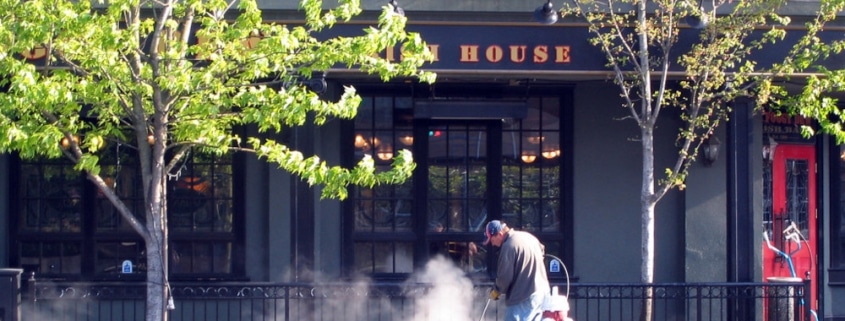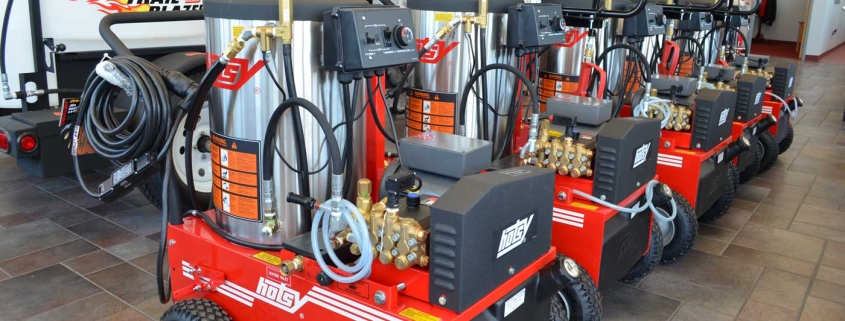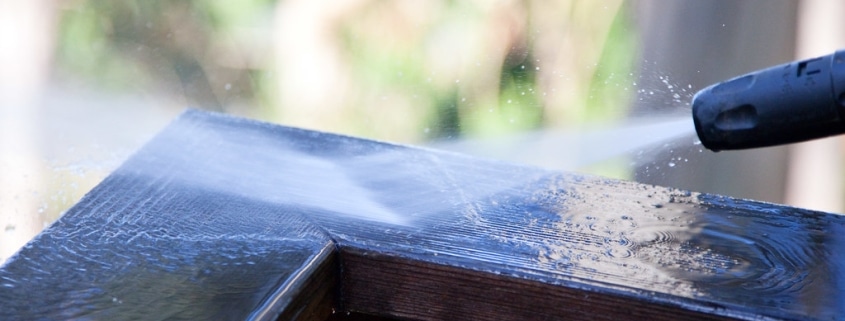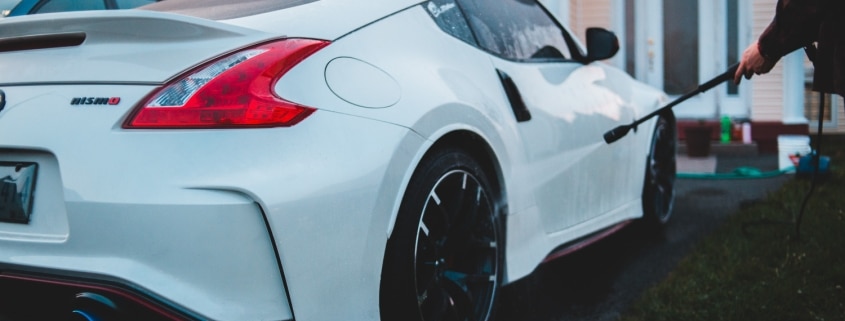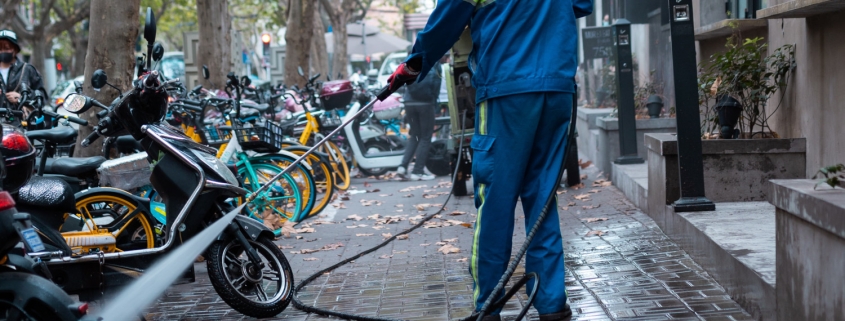If you are wondering what kind of oil a pressure washer uses, keep reading. This guide will show you which oil to use – and how much. You’ll also learn how often a pressure washer needs its oil changed, along with other tips to keeping your unit running smoothly and efficiently. Most importantly, you’ll learn how to actually change the oil in your pressure washer.
This guide will help prevent overheating and other forms of damage to the internal elements of your machine. This is not something you want to miss out on – so keep reading to preserve the life of your power washer!
Does It Matter What Kind Of Oil Goes In Your Pressure Washer?
Yes. It does matter what kind of oil goes in a pressure washer. The wrong kind will cause your engine to not function at all.
To begin, you don’t want to add motor oil to your pressure washer. The reason for this is that most machines do not have oil filters. The impurities found in motor oil can cause damage to the inner workings.
Before you know it, you’ll be finding a pressure washer repair shop that will have to fix the issue. That alone will cost you plenty of money on the service. That’s why you want to pay close attention to this guide so you can be able to tell which oil is suitable.
Another thing that can cause your pressure washer to not work well is neglecting to change the oil on time. For this reason, you want to make sure you get it serviced on a regular basis. Using your pressure washer on the regular will require you to check to see if it’s in good shape. A huge part of that is checking up on the oil and keeping it topped off. You’ll also need to routinely change the oil altogether, flushing the system.
You may not be using it often, yet you still want to check the oil and give it the proper maintenance it needs. The oil may build up over time and it can be less than effective when it’s sitting in the same place for a long period of time.
So, What Kind Of Oil Does A Pressure Washer Use?
So, what kind of oil does a pressure washer use?
One of the most common options for oil when using a pressure washer are SAE 10W-30 and SAE 10W-40. You want to keep in mind that the manufacturer of your pressure washer may suggest that you use something specific . Make sure you consult your owner’s manual to see if there is a specification. This is your best bet.
SAE 10W-30 or SAE 10W-40 are oils that are useful in both hot summer and cold winter days. For example, if you are looking to use your pressure washer and the temperatures are about 40 degrees (F) or less, SAE 10W-30 will be your failsafe option.
Anything about 40 degrees, it can still be your best option. Remember that you do have an alternative in the SAE 10W-40. Both are synthetic and all purpose oils, which are needed for something like a pressure washer.
Most of the modern pressure washers will not have an oil filter. That’s why it is important to change the oil regularly. You’ll find out how to do that later on.
How To Determine Which Kind Of Oil Goes In Your Pressure Washer
As mentioned before, you’ll want to consider a synthetic oil since it’s compatible with most pressure washers. However, you’ll want to consult your owner’s manual to determine the best option. You will find the most compatible synthetic oil option according to their recommendation.
Also, determine if your pressure washer has a pump. If it does, a non-detergent oil will be useful. The reason for this is due to the fact that they don’t have oil filters the way engine-run pressure washers do.
Remember, there is a difference between synthetic and motor oil. Read the labels carefully before you choose the oil you need. The last thing you want to do is be in a hurry and accidentally grab motor oil instead of the synthetic stuff you need to properly run your pressure washer.
It won’t matter what brand it is. As long as it has the SAE 10W-30 or SAE 10W-40 on the label, that’s exactly what you’re looking for. Now, let us teach you how to change oil in pressure washer.
How To Change Oil In Pressure Washer: Step By Step
Ready to learn how to change oil in pressure washer? Here’s what you need to know:
Changing the oil is part of the maintenance process. Doing this is a must for those who own a pressure washer. Failure to do this can lead to performance issues and it may not work as well as you hoped it would. When it comes to your business, efficiency is everything – and neglecting to change your oil can cause performance problems. So, read carefully!
Even if you are not using your pressure washer very frequently, it still needs to be maintained. We’ll talk about how often you need to do that shortly. For now, let’s take a look now at how you can change the oil in your pressure washer:
- Put a catch basin underneath where the drain hole is (if present). The oil may miss the drain, so it would make sense to use a catch basin that will catch any spills that may happen
- Remove the cap and let the oil flow out
- The drain plug will be found at the low point of the washer’s engine. Make sure to rinse the area first before going any further. Remove the bolt that secures the plug using a wrench or a socket wrench. The size you need may vary on what washer you’re using
- Continue to let the catch basin collect the oil (and also on the metal plate). After the flow ends, wipe the area and reattach the bolt
- Place a funnel into the fill hole and add new oil to it. Close the pump when finished
There you have it. Before you do anything else, you want to clean the area of any spills just in case. You now know how to change the oil in pressure washers from start to finish. So, the real question is how often should it happen?
How Frequently Should You Change The Oil In Your Pressure Washer?
As a rule of thumb, you’ll want to change the oil in your pressure washer every three months. This is only if you are using it on a frequent basis. Otherwise, you can change it every 30 to 50 hours of operation.
At some point, the frequency will change to about every 300 hours of use or every three months regardless if you are using it on a regular basis or not. Making sure you take on the preventative measures that will help keep it running is important.
The debris that builds up in your engine may cause your pressure washer to overheat. It can get to the point where your engine may malfunction and it will stop working altogether. From there, your option will be to get a new one.
Of course, you don’t want to spend a lot of money replacing one outright. Depending on several factors, you may have to spend thousands on a pressure washer. The more diligent you are in sticking with your pressure washer, the better your pressure washer will perform. Similarly, it will last longe.
What Kind Of Oil Does A Pressure Washer Use? Wrapping Things Up
The good news is that Hotsy has hot water pressure washers for sale. Whether you’re operating a construction or contracting business or you run a car detailing service, we’ve got the units you need at prices that work for you. You’ll even find cold water units, electric models, and more.
No matter your intent and purpose, Hotsy is your go-to place to buy a commercial pressure washer San Antonio that will help you find the right one. If you need something larger, a pressure washer trailer just might be exactly what you’re looking for.
If you don’t have a pressure washer and need one for a quick task every now and then, we’ve got a pressure washer rental service available for you. This is the most affordable, desirable option for those who only need sporadic cleaning. If you have any questions regarding pressure washers that you can buy or rent, contact Hotsy today at 210-224-4906. We’re excited for you to experience the Hotsy difference for yourself. After all, nothing cleans like a Hotsy!
